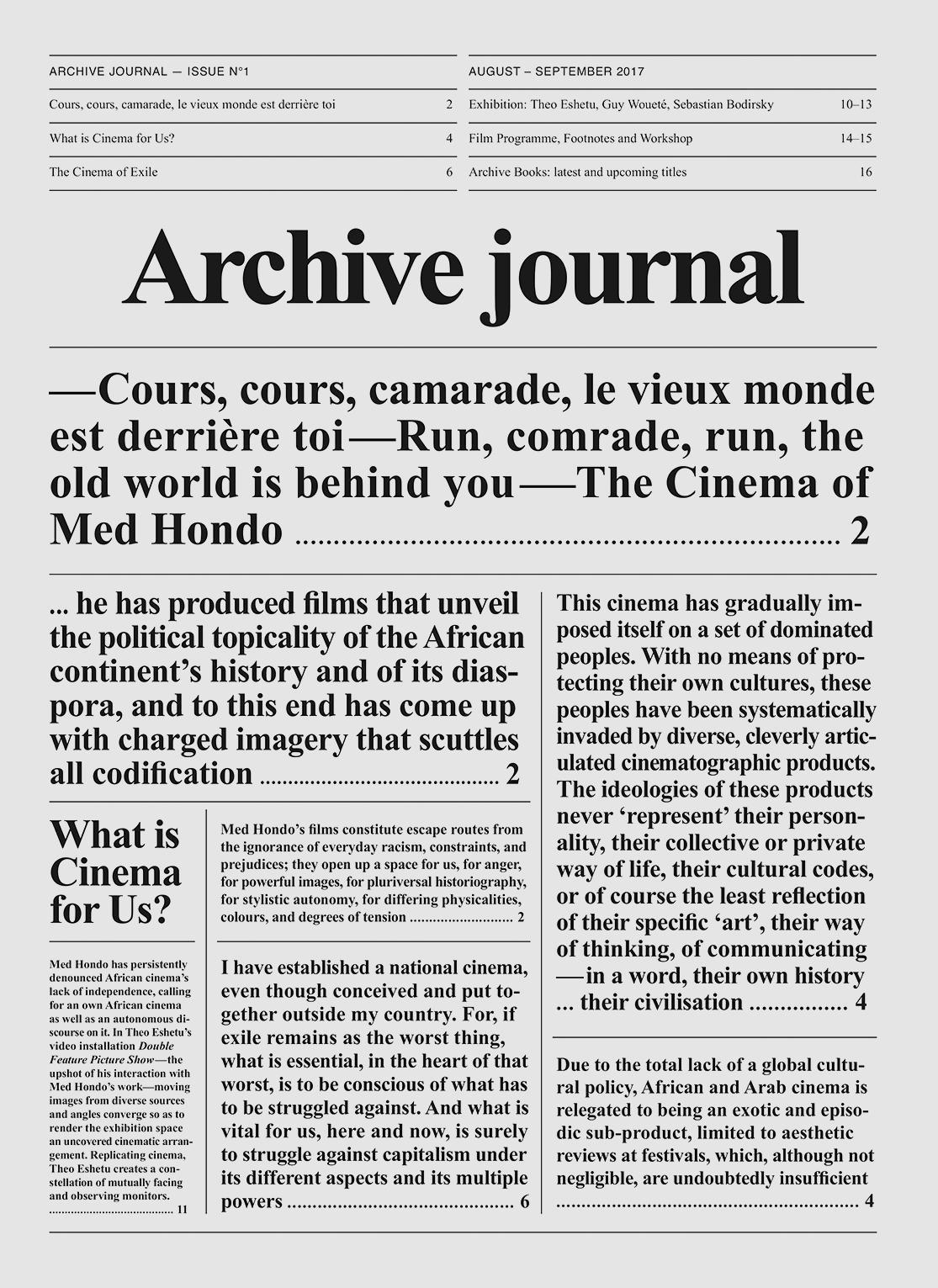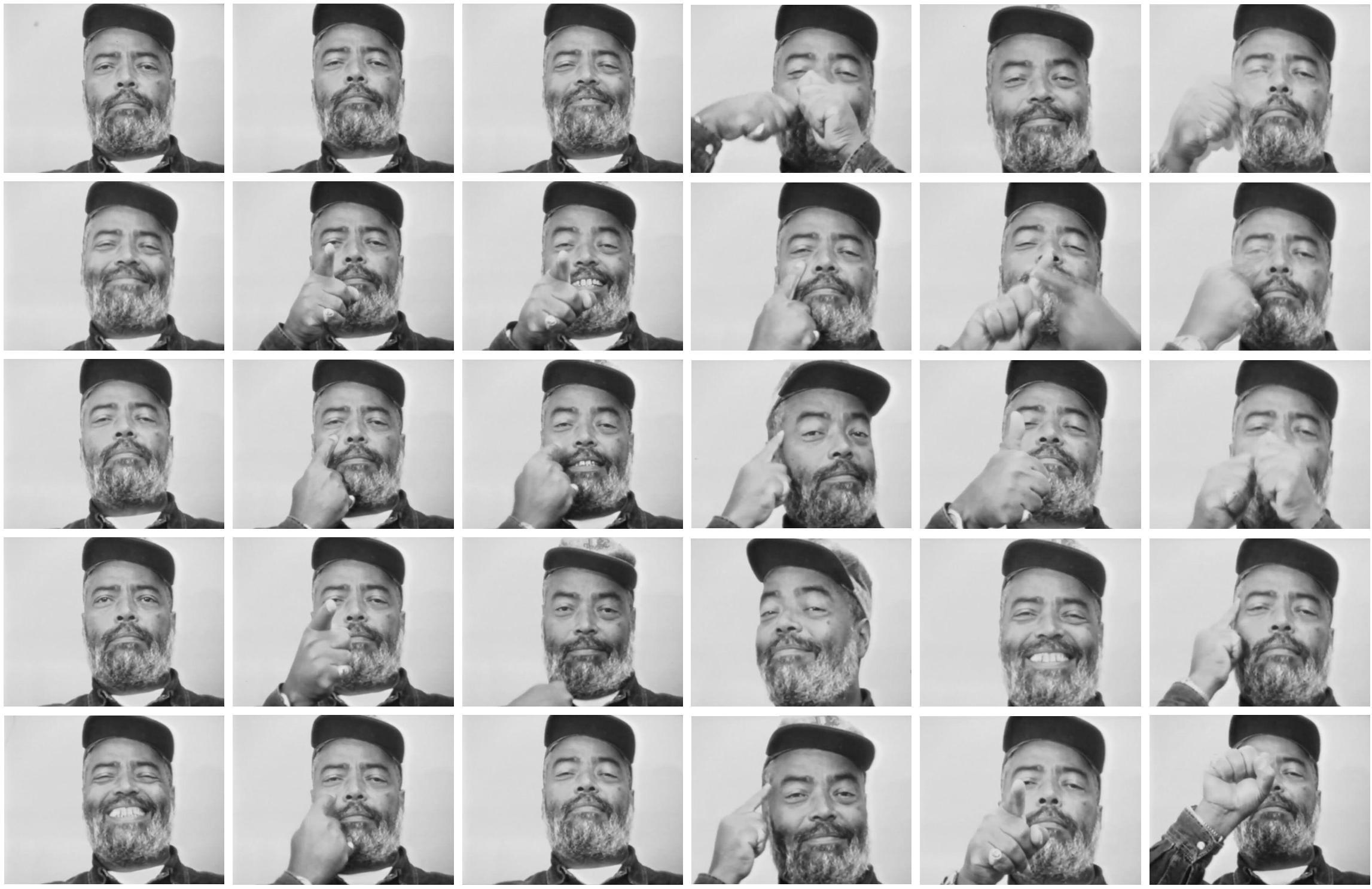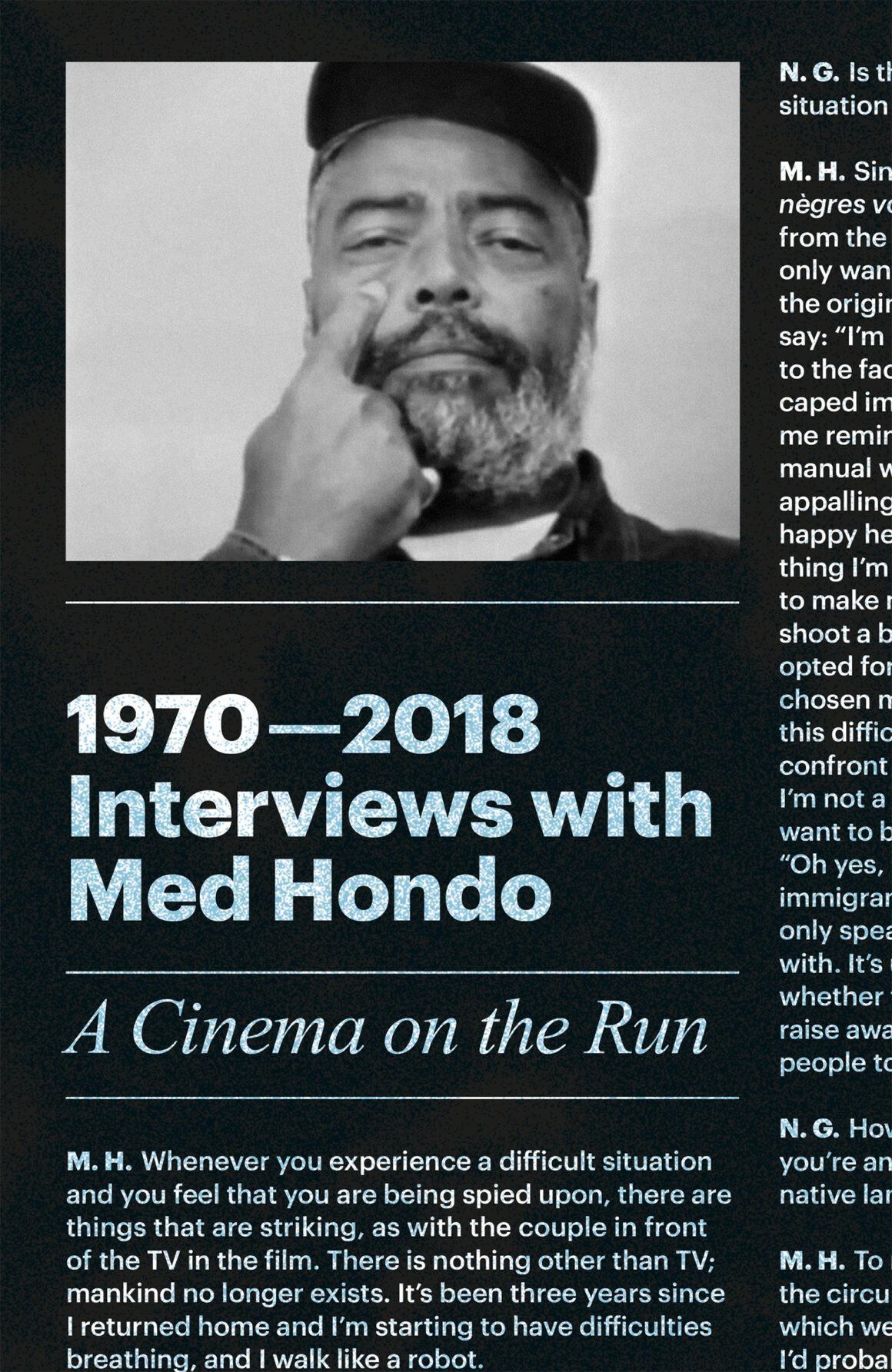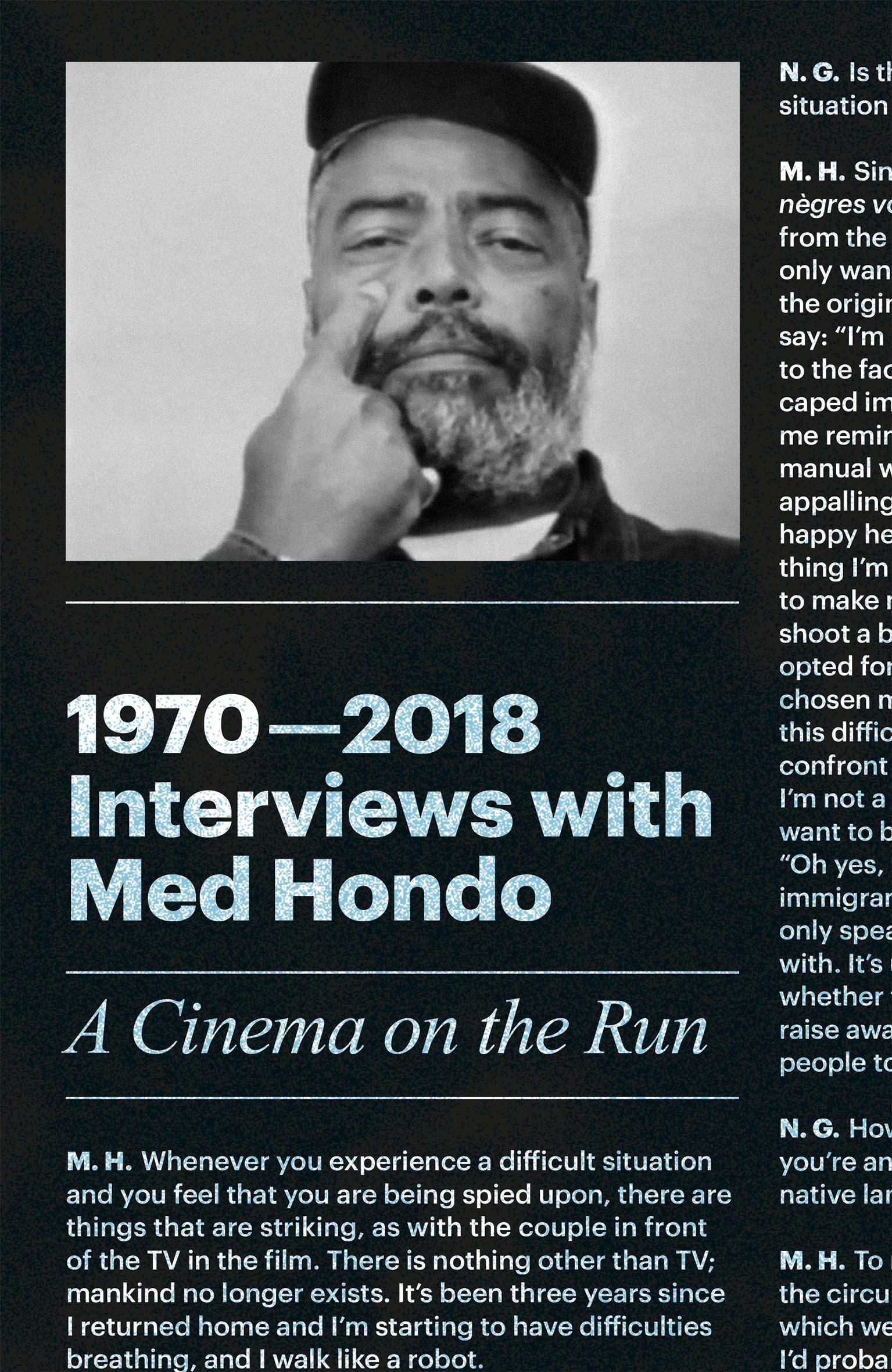
1970—2018 Interviews with Med Hondo, the first
volume in a three-part publication, brings together seventeen interviews conducted with Med Hondo over a period of almost half a century, most of the interviews originally published in French were translated into English. The book originated in the long-term project Cours, cours, camarade, le vieux monde est derrière toi—Run, comrade, run, the old world is behind you—The Cinema of Med Hondo.
To read Med Hondo opens us up to many perspectives: to his work and its time-historical contexts, to his interests and obsessions, to his standpoint with regard to the intertwining of politics, economics, and culture. Med Hondo describes the school of pronunciation until such point as the slightest accent is erased; he observes the insults immigrants in France have had to tolerate, and fuses their stories and histories with the present; he builds bridges to the Caribbean and to the Western Sahara, to Algeria and Burkina Faso, to Niger and Senegal, to South Africa and the USA. This publication aims to draw attention to Med Hondo’s cinema and legacy.
1970—2018
Interviews with Med Hondo
A Cinema on the Run
Interviews by Michel Ciment and Paul-Louis Thirard, Moune de Rivel, Jean Delmas, Madeleine Dura, Noureddine Ghali, Guy Hennebelle, Rémy Kleib, Marcel Martin, Meneceúr Merzak, Françoise Pfaff, Don Ranvaud, Mark Reid, Jean Roy, Catherine Ruelle, Christian Scasso, Melissa Thackway
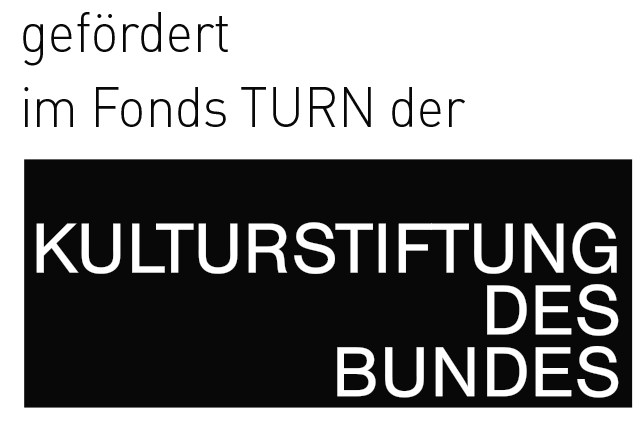
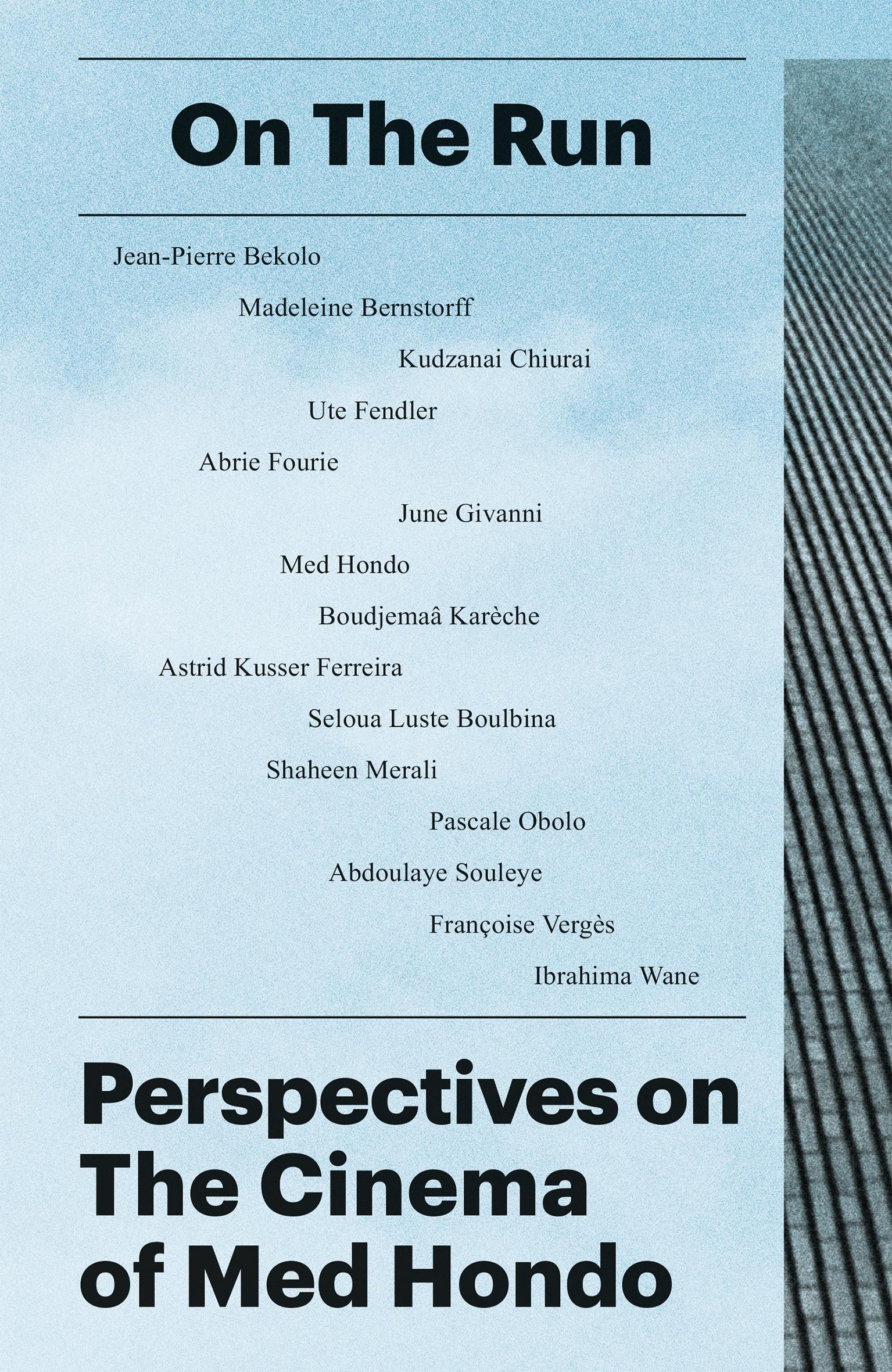
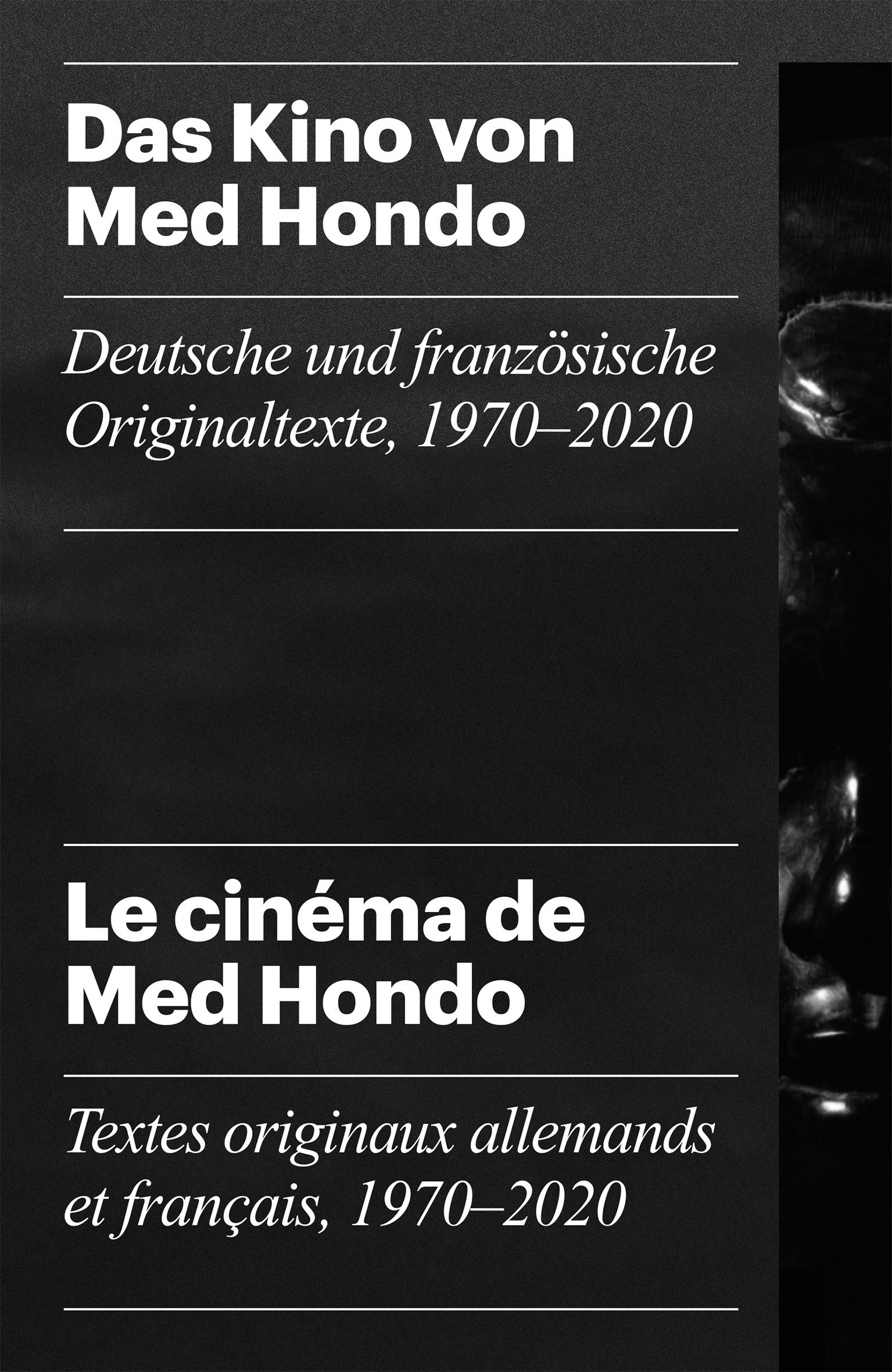
↑ Excerpts form “What is Cinema for Us?” first published under the name Abid Mohamed Medoun Hondo in Framework (Issue 11, autumn 1979) in a translation by Greg Kahn and reprinted in a slightly edited version in Jump Cut, no. 31, March 1986, pp. 47–48. And, “The Cinema of Exile” is based on an conversation with Med Hondo from 1974, revised and first published in French in: Claude Michel Cluny, Dictionnaire des nouveaux cinémas arabes, Paris: Éditions Sindbad (La bibliothèque arabe), 1978, pp. 375-383, translated into English by John D. H. Downing and re- published in his anthology Film & Politics in the Third World, New York: Autonomedia, 1987, pp. 69–76.
The night of colonialism caused many quarrels among us; we have yet to assess the full consequences. It poisoned our potential communications with other peoples; we are forced into relations of colonial domination.
We have only preconceived and false ideas of each other imprinted by racism.
I have established a national cinema, even though conceived and put together outside my country. For, if exile remains as the worst thing, what is essential, in the heart of that worst, is to be conscious of what has to be struggled against. And what is vital for us, here and now, is surely to struggle against capitalism under its different aspects and its multiple powers. Even if the struggle is only a brush-fire, it is a fire which will spread.
